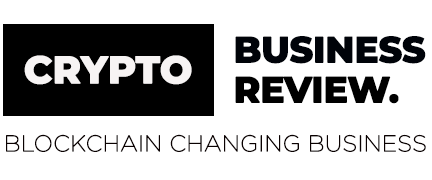Retail is a 24/7/365 industry where taking a break could spell corporate disaster. Managing a mom-and-pop store can be an exhausting undertaking, so imagine the boundless energy required to manage a national retail enterprise.
This reality highlights one of the main challenges to blockchain adoption: most retail leaders simply have too much on their plate to fiddle with a new technology. One day blockchain technology may evolve so that outside developers can sell pre-packaged systems to retailers. But for now, the majority of the industry seems unwilling to take on the development themselves.
Current retail systems work as they are, so convincing CEOs to bring blockchain into their daily operations is like telling them to fix what isn’t broken. It’s a tough sell. But as the Amazons and Walmarts of the world continue to bound further ahead of their competitors by adopting blockchain, the whole retail industry may have to follow suit or go extinct.
1. Christian Beckner, Senior Director of Retail Technology at NRF
“The two top challenges are (1) difficulty of making the case for a significant and near-term positive return on investment, and (2) integrating blockchain technology into companies’ existing IT infrastructure and business processes.”
2. Brendan Miller, Principal Analyst at Forrester Research, Inc.
“Retailers simply have other priorities at the moment. Particularly working on customer experience improvements and opportunities that can generate new revenue streams. Use cases for blockchain in retail are not fully developed and it is still too early for most retailers to dedicate development resources.”
3. Kristen Howell, Partner at Fox Rothschild
“Retailers face tight profit margins. New systems require large investments to develop and implement, so they have to add value. This is likely why we see the quickest adoption in the higher-profit retail segment of luxury goods where authenticity protects brand and price, and in areas like ethical sourcing where accomplishing social objectives adds value beyond profitability.”
4. Carol Spieckerman, President of Spieckerman Retail
“At this early stage, the challenge is focus. Determining the applications of the technology that are most feasible and will have the greatest impact. Retailers should take different approaches and have unique priorities, so copying others won’t be the best way to go about it. Blockchain initiatives will be layered onto existing technology platforms and must play well with them, so focusing resources and establishing internal accountabilities will be additional aspects of the focus challenge.”
5. Michael Dobak, CMO of BLOCKv
“Most blockchain startups are just going to market and launching their products. The number one challenge will be proving out success through pilot implementation with well-known brands. Project NGAGE’s launch at NRF is a great way to demonstrate how blockchain can work for retail.”
6. Greg Buzek, President of IHL Group
“I think the biggest challenge right now is there are so many other more pressing needs for many retailers. Competing with Walmart and Amazon is more pressing than blockchain at the moment. And in that area, getting better inventory accuracy at the store level is the most critical issue for most retailers right now. Consumers come to stores because they need the item now or need more expertise/experience with the item. Blockchain doesn’t help that directly. It can make the process more efficient but you either have the product or you don’t. That is most critical.”
7. Paula Rosenblum, Co-founder and Managing Partner at RSR
“Apart from the obvious: retailers are not the earliest adopters of technology in the world, the vendor base, most especially the shippers, are excited about it. However, it doesn’t seem to scale well enough yet to handle the kinds of volume that we see in retail. So several vendors, including IBM are working on it, while UPS has said it’s their database of the future.
So apart from the cultural challenges, there are some real technological challenges here.”
8. Morvareed Z. Salehpour, Esq., Managing Partner of Salehpour Legal Consulting
“The biggest challenge to adoption of blockchain technology in the retail space is a confusion about what blockchain technology is and what it can do for such businesses. Additionally, many businesses fail to realize that transactions that occur on blockchains are more complicated from the legal side given that the transaction is occurring simultaneously on nodes that are located in different locations with differing applicable laws as well as in the sense that smart contracts are not fool proof and things may still go wrong from either bad data being fed into them or from smart contract code vulnerabilities. This means that there are new and complicated jurisdictional, liability, and enforcement issues involved with these transactions that businesses need to have some forethought with respect to and address with legal counsel on the front end to avoid costly litigation down the road.”
Original Text: DisruptorDaily.com














